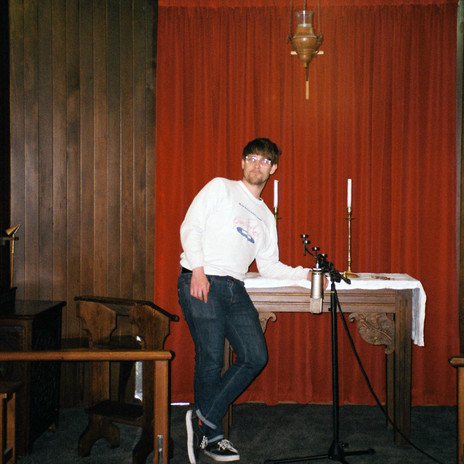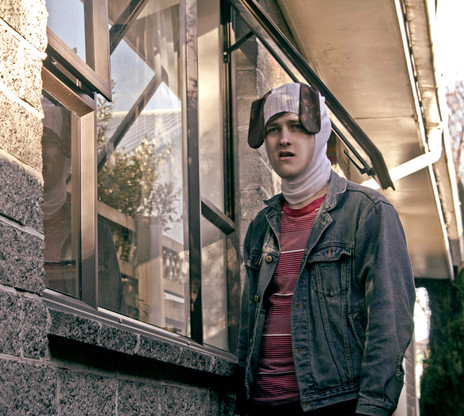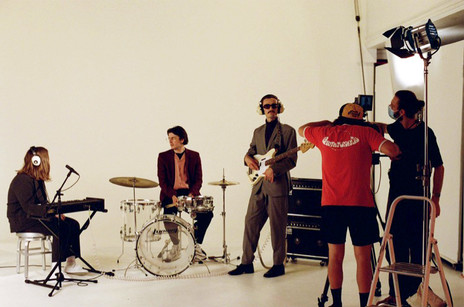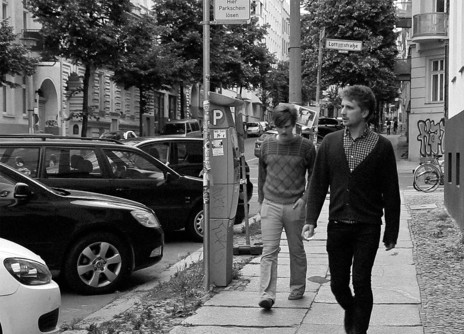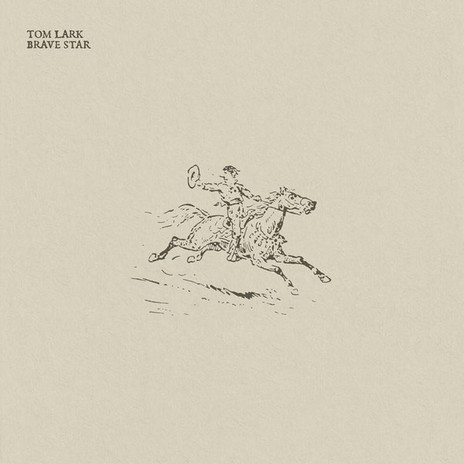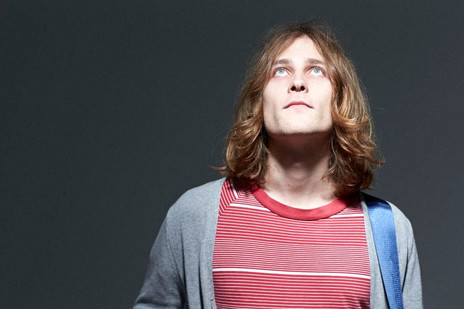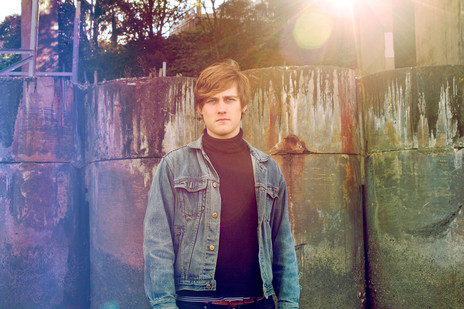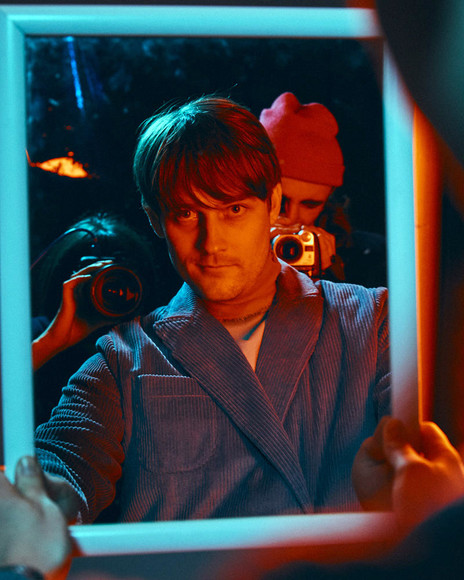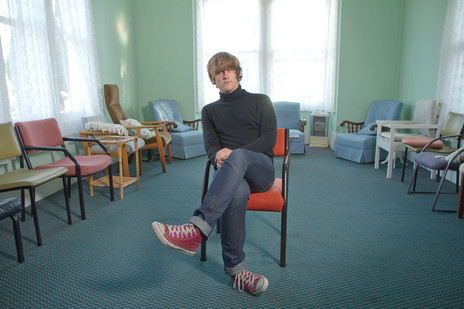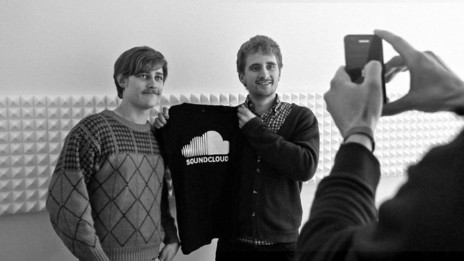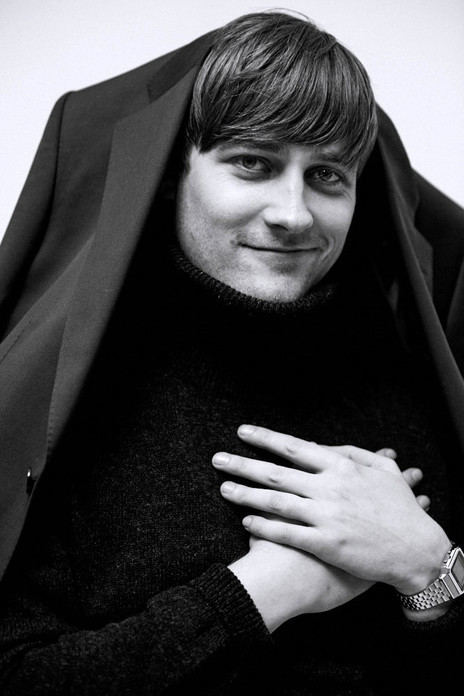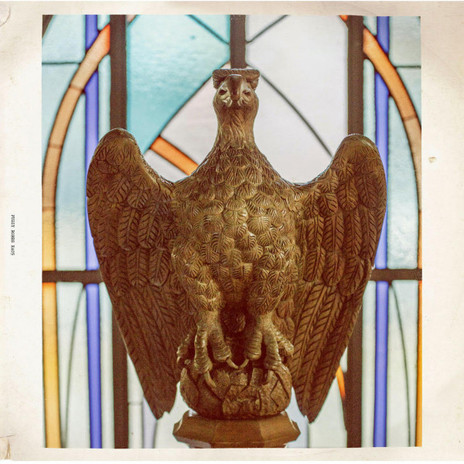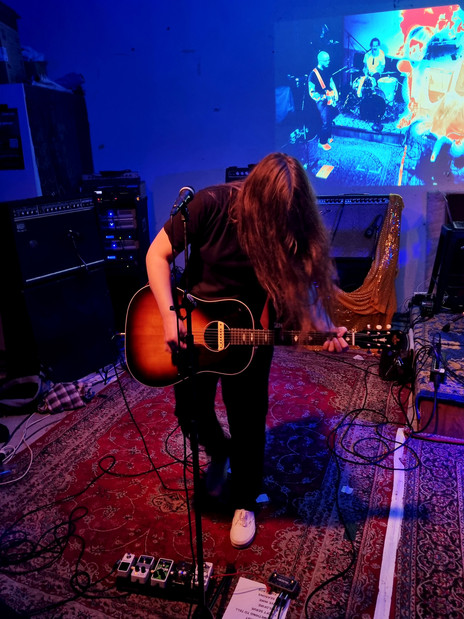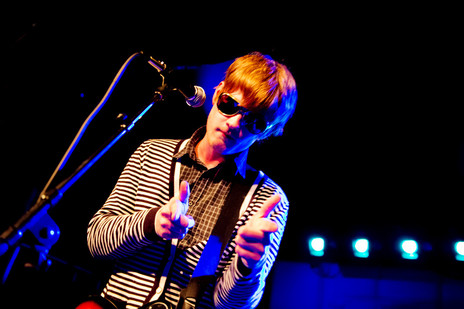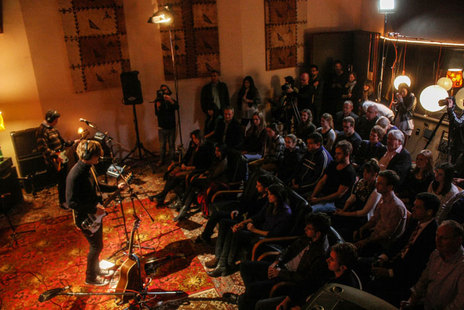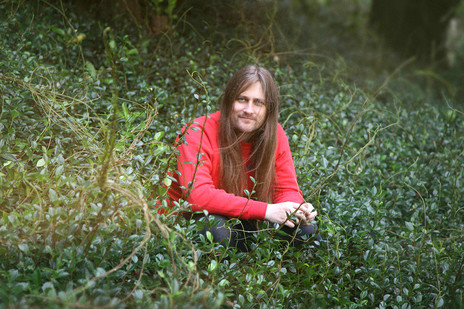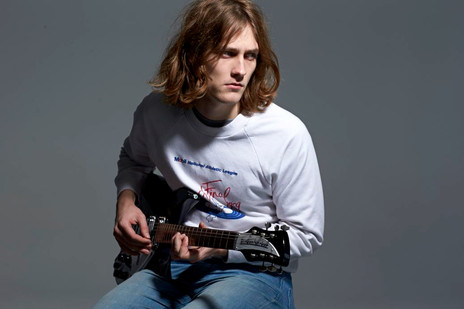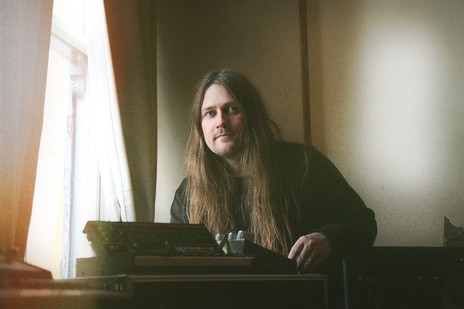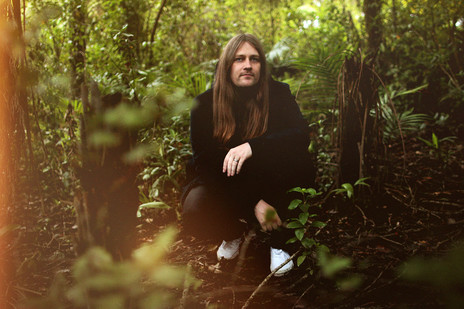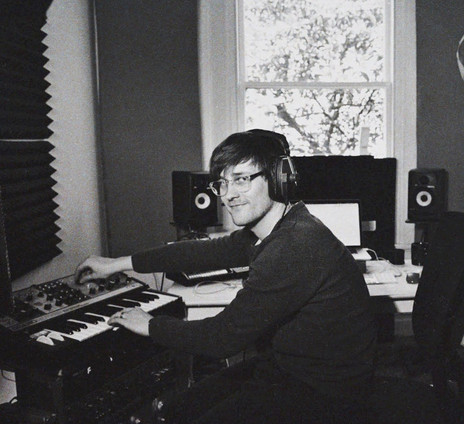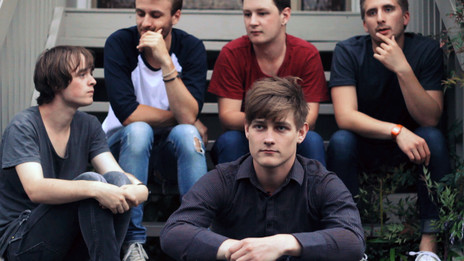Shannon Fowler discovered his love for music and production during his tweens and early teens. His older brother Joshua was already drumming in bands with friends, which inspired Shannon to get guitar lessons. When Joshua got a copy of digital audio workstation Fruity Loops 6 they started making electronic tracks, although he admits his main intention was programming Blink 182 tracks. There was no way to record live instruments so he recreated the basslines and guitars by tapping out synthesised notes. Joshua then got the recording software Acid, which allowed them to plug in guitars through the microphone input. They began uploading their experiments to Myspace.
Fowler corralled his friend Chris to play drums so they could practise a few songs he’d written, but soon realised his friend was more interested in hanging out than repeatedly playing the same poorly written handful of songs. He formed a more active group, Sunburn, with Joshua, their cousin Daniel and friend Johnny Brock. They were soon gigging regularly in Ōtautahi Christchurch and nearby towns such as Whakatū Nelson.
“We played a hell of a lot, but our songs were really bad. They were a weird mash of Bloc Party, Oasis, and whatever else was in fashion. Then my cousin and Johnny moved up to Auckland. The plan was that I was going to go too, but I didn’t feel grown up enough so I stuck around. So I started a band with our friend Lukas Thielmann. We thought The Veils were cool, so we tried to do something a bit like that but it came out like bluesy grunge.”
The band was called The Jasper Sweeney and their first EP was played on student radio. Lukas was learning sound engineering and working with Ben Edwards at his Sitting Room recording studio, so the band went there to record a new EP. They were only halfway through when the 2011 Christchurch earthquake hit. The hard drive with their recordings was destroyed. Fowler then set up his own recording studio at home, buying a basic audio interface to see what he could achieve. The result was the first Tom Lark EP.
Using the name Tom Lark meant Fowler had freedom to experiment
The name of Fowler’s new project reflected that he considered it a bit of a lark at first, rather than something serious, but it meant he had freedom to experiment. The chorus of ‘All Night Long’ was layered with burbling synth sounds, while the backing vocals of ‘Give You All My Lovin’ were coated in odd effects. It was catchy indie rock, with distinctly unique flourishes. It quickly found an audience on student radio, and Fowler was surprised when it gained him label attention.
“Jasper Sweeney did a South Island tour supporting Steriogram. They thought we were good, so I sent them the Tom Lark EP. Tim [Youngson] was working for Scott Maclachlan who was at Universal. They didn’t seem interested at first, but then suddenly they got in touch. When you’re in Christchurch, any label that shows interest seems like the right fit. You don’t give it a second thought. Meanwhile my friend Johnny [from Sunburn] had joined the Avalanche City live band and that put me in touch with their manager, Matt Coleman, who I worked with.”
Coleman bought advertising time in bulk on the bNet stations to support his acts, which was a positive for Tom Lark. Fowler also credits his cousin Daniel, who took copies of the EP to bFM and put them in all the DJs’ pigeonholes.
Tom Lark’s career in Australia started through Coleman befriending Mike Taylor from Universal Australia. The pair seemed intent on doing a deal, though Fowler felt it was random timing that resulted in him being the pick of Coleman’s acts to be signed. At the same time, Taylor did seem to genuinely like his music.
Fowler flew to Berlin to work with the Australian Simon Berckelman at his studio
A similarly random deal came through Coleman wanting to work with Simon Berckelman, who’d just moved from Australia to set up a studio in Berlin. Coleman covered the cost of Fowler flying over to work with him. Afterwards Fowler settled in Auckland and set up his own Okie Dokie Studio in his flat on New North Road. He gradually befriended other musicians in the city, who became his band: Mark Perkins (Merk) on keys, his brother Jono Perkins on guitar, and Guy Cowan on bass. Fowler’s cousin Daniel continued to play drums for him.
The Berlin-produced album saw him signed directly to Universal Australia, though the label stalled when it came to releasing it. Nonetheless, they helped Tom Lark tour through Australia repeatedly during 2012, and Fowler took the band over to the CMJ festival in New York.
In 2013 one of the tracks from Berlin, ‘Go Get A Job’ was released as a single. With a mix of fuzzy guitars and 60s influenced melodies, it had airplay on indie radio station Triple J, which was at the height of its power in the Australian market. Tom Lark gained enough of a following to headline iconic venues such as the Bondi Hotel (capacity around 600) and supported Australian bands of the moment such as Hey Geronimo. Fowler was however becoming increasingly frustrated by record company delays, with only one more single, ‘Haircut’, being released by the end of 2013.
He also parted ways with Coleman, after becoming suspicious about some of his accounting practises. This turned out to be a good move, given that Coleman was later found to have defrauded Avalanche City of over $300,000.
Fowler started working with Saiko management, run by Amy Goldsmith and Scott Maclachlan, who was coming off his success working with Lorde. Fowler enjoyed working with Goldsmith in particular, though he sometimes had different ideas.
“I didn’t need developing as much as the young pop acts they were helping to enter into the music scene. I remember they suggested I stop playing guitar and just be a singer. I said ‘but then who will play the guitar parts?’ Amy was enthusiastic like me and she always did a good job.”
(A few years later, Amy Goldsmith spoke to Stuff about how badly she had been treated by Maclachlan while working at Saiko Management and he made a public apology.)
Tom Lark’s Australian breakthrough finally came with the song ‘Something To Tell You’
Tom Lark’s Australian breakthrough finally came with the song ‘Something To Tell You’, inspired by a friend back in Christchurch. “After the quake, things just got really messed up for everybody, while I was just up here getting on with stuff. So I was feeling redundant and unable to help with what my friend was going through.”
The song was the top played song on Triple J over the summer period that year and the subsequent EP had a second hit, which expressed a similar feeling of mixed emotions. ‘Never Be Your Man’ breezed past a couple of million streams, although Fowler recalls this wasn’t the original aim.
“When I first signed to Universal, I’d suggested delaying the release of my work by a couple of weeks so that more people would buy it on iTunes. Whereas you’d never do that now. So that’s a real timestamp on when all that was happening. By the time of the second EP, it had already begun to change.
Tom Lark backed the EP by supporting Gruff Rhys of Welsh rock band Super Furry Animals for a tour across Australia, which Fowler says was one of the highlights of the period. He also helped out an old friend from Christchurch, Kim Pflaum, who’d just left Yumi Zouma and was relaunching herself as Madeira. He co-produced her EP, which included the online hit ‘Let Me Down’ and was released through Carpark Records in the US.
Unfortunately, Fowler’s own career was about to hit another wall. His management pointed out to him that the deal he’d signed with Universal Australia was heavily weighted in the label’s favour and kicked off protracted negotiations to extract him from it.
Fowler already had almost a complete, unreleased album from his work in Berlin and now he was accumulating an equal amount of new work, with no way of releasing it.
“It took two years to get out of the Universal contract. It might not seem long, but when you’re young it feels like forever. It was really sad, I just wanted to be able to release music. My management were getting busy with other acts like Leisure and Thomston. I was getting into Ariel Pink – not an act you’d namecheck these days! – so I was making my wacky tunes and they didn’t really understand it. That’s why I started getting into production more.”
Fowler had relied on Mark Perkins to be his go-to keyboard player for many years, and reciprocated when Perkins launched his own project, Merk. Fowler also offered production advice for some of the songs on his albums Swordfish (2018) and Infinite Youth (2021), and the pair later collaborated on a song with pop singer Georgia Lines, ‘Never Had Love’.
Fowler began writing music with the rapper Randa (Mainard Larkin)
More surprisingly, Fowler began writing music with the rapper Randa (Mainard Larkin). ‘Rock Bottom’ and ‘Toughen Up’ helped launch Randa onto the local scene and were followed by the online hit ‘Heatwave’ which soon passed a couple of million streams. Fowler helped other friends with their music, most notably drummer Alex Freer who’d started his own project AC Freazy. He also produced tracks with pop singer Belladonna and wondered if it might open a new path for him.
“I thought I could have a crack at real pop music and see where it goes. I thought I could write songs and give them to other artists, but even though that might happen in LA, it isn’t really how it works in New Zealand – most artists want to have input into their songs. I wanted to be like Mark Ronson, but instead I just ended up putting out the songs myself.”
Fowler had already met local entrepreneur/creative Connor Nestor through the Auckland music scene and now Nestor had a new label with Jordan Arts (Leisure) named “A Label Called Success”. The pair had a two-year arrangement with Sony to release whichever acts they signed. The pair helped Fowler launch his pop-centred music under the name Shannon Matthew Vanya.
“It was quite fun,” says Fowler. “Jordan is a really great visual artist and he made the video for ‘Closer’. Initially I wanted it to be an ice skating routine like you’d see at the Olympics, but they said that for safety reasons it would be better to just do it on roller skates. Then the next thing you knew, I was the roller skater. It was a bit different to what I’d intended, but it came out well.”
The two singles ‘Closer’ and ‘Stuck’ both gained decent plays online and heralded a self-titled EP. Fowler then got the chance to work with other singers as he’d originally intended, bringing on board Ives for ‘Saw It On Your Eyes’ and Léveyne for ‘It Gets Better’. The latter in particular has the melancholy but upbeat feel of a classic Tom Lark song, though it arrived too late to gain much support from A Label Called Success – the deal with Sony had finished and Nestor and Arts were working on other projects.
Fowler already had another project underway, which took him in an entirely different direction. “A friend of mine reached out and said that the Bishop of the Anglican Diocese of Christchurch wanted some music that would benefit young people. That would’ve been around 2017, but it wasn’t until a year later that I came up with an idea for it. Guy Cowan from Tom Lark joined me and we flew down to Christchurch to record with Lukas from Jasper Sweeney. He is a great engineer, especially when it comes to making drums sound good. We recorded tracks in different chapels and used their pipe organs.”
The project was called The Fuzzy Robes and each song was based around lines from the New Zealand Prayer Book / He Karakia Mihinare o Aotearoa, whether in English or te reo Māori. Fowler was a fan of the Electric Prunes and saw their approach on the 1968 album Mass In F Minor as a starting point, which gave the sound a psychedelic direction. Night Prayers (2021) soon became a cult favourite and when it reached the ears of local industry archivist/promoter/label-owner John Baker, he arranged to release it on vinyl. It was followed by a second album in 2024, Midday Prayers.
Recent Tom Lark music sees slower tempos and lyrics on more reflective themes
Even as the second releases by The Fuzzy Robes and Shannon Matthew Vanya were coming out, Fowler was working on new Tom Lark material. The tempo had slowed and the lyrics increasingly took on more reflective themes. ‘Live Wires’ was inspired by being at a funeral and hearing the deceased person’s favourite song playing over the stereo. The album, 2023’s Brave Star, is a breezy listen with a laidback acoustic sound, and was nominated for Best Folk Album at the Aotearoa Music Awards. The title track lyrics sound like Fowler encouraging himself onward: “Maybe you’re a star / But not the one they thought you were / Everybody’s dream your shining / Brave Star.”
Despite being tagged as folk, a closer listen reveals that Tom Lark hasn’t abandoned synthesised sounds, with atmospheric digital flourishes providing a backdrop for many of the songs. There are interesting production choices too, such as the distorted piano on ‘Visiting Bunbury’, a song inspired by a line from The Importance of Being Earnest in which a character keeps claiming to be visiting their cousin Bunbury whenever they want to get out of an obligation. His knack for a catchy melody remains too, especially on post-album single ‘Dumb Luck’ and he took his music overseas by appearing at the Great Escape Festival in the UK.
Fowler was equally active as a collaborator and his work with Mainard Larkin went in a surprising direction.
“Mainard made an off-hand comment about wanting to do country music. I ignored it at first, but then I thought, actually that’d be cool. The first song we did is called ‘Gossip’ which was based on an old one we’d tried to make together. Then we made one called ‘Lost My Smile’ that we were really into. That showed us we could do a whole album and we came up with the concept of writing about a wrestler who was down on his luck.”
“It used to be that we would work so hard to get everything lined up and then roll the dice, hoping that a song or album might blow up. That’s quite a poisonous and stupid industry mindset. You can just be an artist and just grow your own shit – just slowly keep coming back. Now I joke about how you just keep showing up for work and eventually someone’s gonna pay you for it. That’s kind of my mindset. There’s more power, ownership, and happiness in just doing your work and making it the best you can.”
